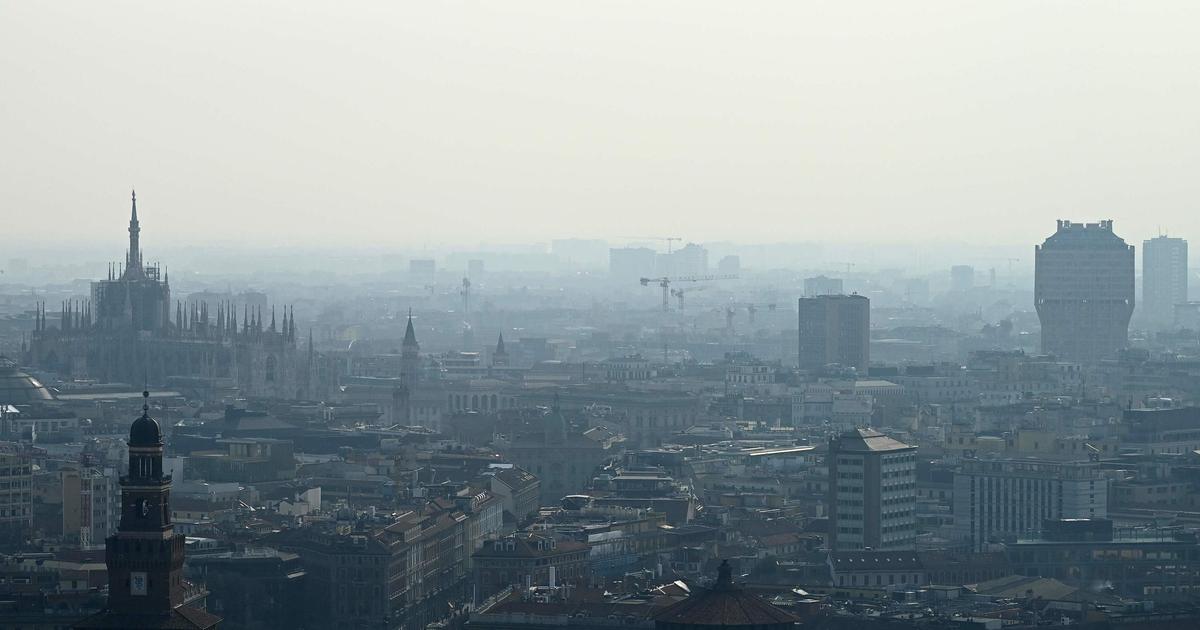Less strict than the World Health Organization (WHO) which proposed new objectives for ambient air quality in 2021, the European Union still wishes to strengthen its regulations, from 2030, for all member countries.
As expected by experts, this reform should be initiated before the European elections which will take place in June.
This future improvement in outdoor air quality requirements has obtained a provisional so-called “tripartite” agreement bringing together the European Parliament, representatives of the Member States and the European Commission.
The final text must still be approved by a formal vote of MEPs.
This new framework aims to tighten the previous European regulations of 2008. Current standards, in particular those in force on fine particles, continue to be responsible for 300,000 premature deaths per year in Europe, including 40,000 in France.
These microscopic particles promote the development of numerous respiratory, cardiac and cerebral diseases and are suspected of promoting the development of cancers, diabetes (type 2) and degenerative diseases such as Alzheimer's.
The threshold in outdoor air for fine particles known as “PM2.5” (diameter less than 2.5 microns or millionths of a meter) should be reduced by more than half.
It must be set at 10 micrograms per cubic meter (m3) of air, as an annual average, compared to 25 currently.
And the concentration of nitrogen dioxide (NO2), a very irritating gas produced mainly by automobile traffic, should be halved (to 20 micrograms per m3 of air compared to the current annual average of 40).
Even if future European objectives are twice as high as WHO recommendations, most experts and NGOs welcome this initiative.
This draft European regulation also requires monitoring of so-called
“
emerging
” pollutants.
These include
“
an obligation to monitor ultrafine particles and black carbon, but without setting limit values
”
, explains Airparif, the association responsible for measuring air quality on the Island. -of France.
Ultrafine particles, also called PM0.1 (diameter less than 100 nanometers or billionths of a meter) are so small that they can pass directly into the blood, reach all organs, and cause tissue inflammation.
The size of bacteria or viruses, resulting from different combustion activities (heating, cars, planes, cigarettes, etc.), PM0.1 is particularly present in cities and large urban centers.
They are beginning to be continuously evaluated, but this requires the deployment of new measurement equipment.
In France, the Federation of Associations Responsible for Monitoring Air Quality welcomes this draft directive, even if the text is
“
less ambitious than what was voted on in the (European) Parliament last September
”
.
This reform encourages citizens to take legal action if the recommendations are not followed to the letter.
NGOs have already succeeded in having France condemned by the Council of State, after complaints filed in 2017, about the concentrations of fine particles and, above all, those of nitrogen dioxide which were exceeded in several cities.
Penalties imposed on the government by the Council of State have already been paid to public bodies, responsible for helping to control energy consumption or prevent environmental risks.
Other litigation remains ongoing, notably before the European Court of Justice.
Finally, the introduction of the reform, envisaged for 2030, may be delayed by ten years by Member States.
However, the European directive provides that by 2030, the thresholds for pollutants in the air may possibly be tightened, according to the recommendations of scientists.
The WHO had already estimated, in 2021, that if the thresholds it recommends were respected, around 80% of premature deaths linked to ambient air pollution could be avoided.

